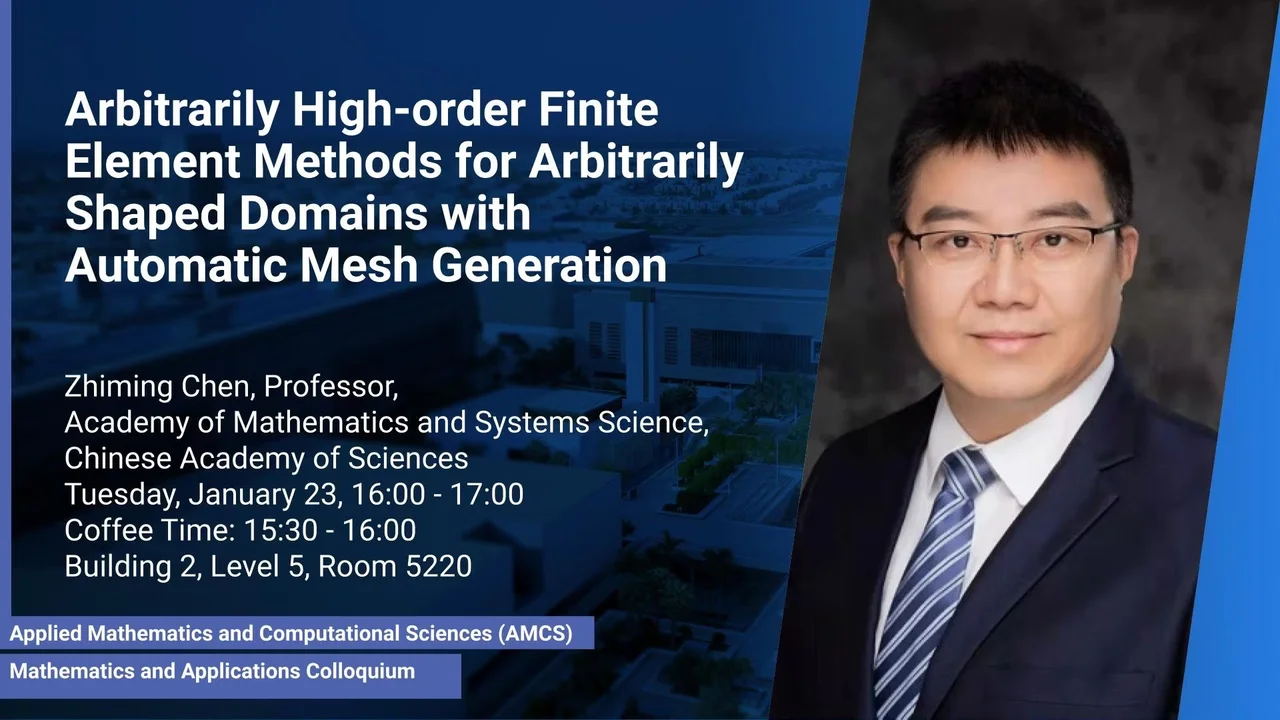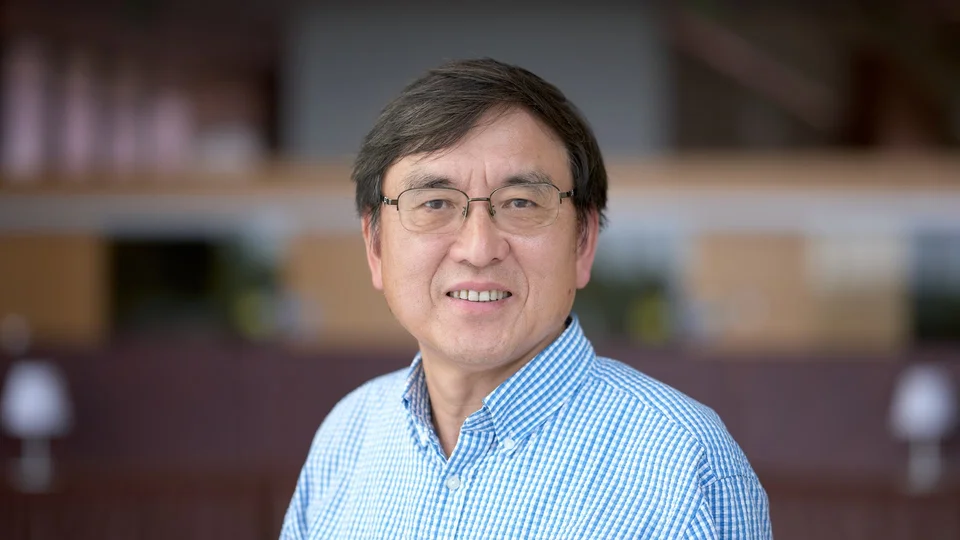
Arbitrarily High-order Finite Element Methods for Arbitrarily Shaped Domains with Automatic Mesh Generation
- Prof. Zhiming Chen, Academy of Mathematics and Systems Science, Chinese Academy of Sciences
B2 L5 R5220
Coffee time: 15:30–16:00. We consider high-order unfitted finite element methods on Cartesian meshes with hanging nodes for elliptic interface problems, which release the work of body-fitted mesh generation and allow us to design adaptive finite element methods for solving curved geometric singularities.
Overview
Abstract
We consider high-order unfitted finite element methods on Cartesian meshes with hanging nodes for elliptic interface problems, which release the work of body-fitted mesh generation and allow us to design adaptive finite element methods for solving curved geometric singularities. We introduce new concepts of the large element and interface deviation to solve the small-cut cell problem of unfitted finite element methods. We construct reliable algorithms to merge small interface elements with their surrounding elements to automatically generate the finite element mesh whose elements are large with respect to both domains. Numerical examples are presented to illustrate the competitive performance of the method. This talk is based on joint work with Ke Li, Yong Liu, and Xueshuang Xiang.
Brief Biography
Prof. Zhiming Chen earned his bachelor's degree from Nanjing University in 1986, a master's degree from the Chinese Academy of Sciences in 1989, and a doctoral degree from the University of Augsburg in 1992. He is currently a full professor at the Academy of Mathematics and Systems Science, Chinese Academy of Sciences.
His research spans numerical analysis and scientific computing, with significant contributions in adaptive finite element methods, multiscale finite element methods for fluid problems in inhomogeneous porous media, the perfectly matched layer method for wave-propagation problems in unbounded domains, and the source-transfer domain decomposition method for high-frequency scattering problems.
He received the Feng Kang Scientific Computing Prize in 2001, the Second National Natural Science Prize in 2009, and the Shiing S. Chern Mathematics Award in 2015. He was elected as a member of the Chinese Academy of Sciences in 2017 and became a SIAM Fellow in 2022. He was an invited speaker at the International Congress of Mathematicians in Madrid, Spain, in 2006.
